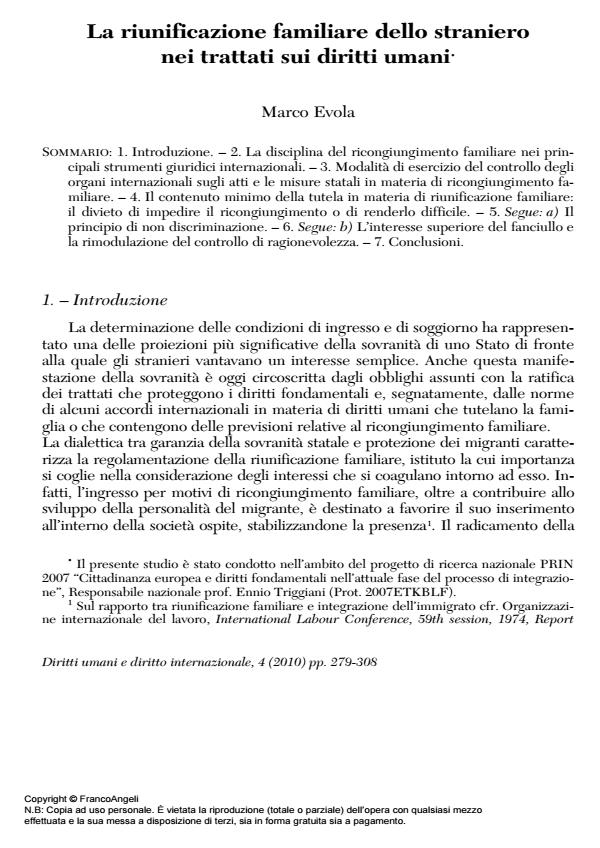La riunificazione familiare dello straniero nei trattati sui diritti umani
Titolo Rivista DIRITTI UMANI E DIRITTO INTERNAZIONALE
Autori/Curatori Marco Evola
Anno di pubblicazione 2010 Fascicolo 2010/2
Lingua Italiano Numero pagine 30 P. 279-308 Dimensione file 558 KB
DOI 10.3280/DUDI2010-002002
Il DOI è il codice a barre della proprietà intellettuale: per saperne di più
clicca qui
Qui sotto puoi vedere in anteprima la prima pagina di questo articolo.
Se questo articolo ti interessa, lo puoi acquistare (e scaricare in formato pdf) seguendo le facili indicazioni per acquistare il download credit. Acquista Download Credits per scaricare questo Articolo in formato PDF

FrancoAngeli è membro della Publishers International Linking Association, Inc (PILA)associazione indipendente e non profit per facilitare (attraverso i servizi tecnologici implementati da CrossRef.org) l’accesso degli studiosi ai contenuti digitali nelle pubblicazioni professionali e scientifiche
Family reunification contributes to the integration of aliens in the countries of destination and the development of their personality as well, but it entails the increase in the demand for social facilities. As a consequence States tend to reduce the opportunities for family reunification. The study analyses the activity of the organs of control set up by the international conventions on human rights and aims at identifying the obligations on States’ sovereignty stemming from the rules of these conventions protecting family life or disciplining family reunification. In assessing the lawfulness of States’ rules on family reunification or decisions on individual cases these organs verify whether States have struck a fair balance between the competing interests of the individual and the community as a whole. The structure of the balance is based on similar criteria. Although no international conventions on human rights enshrine a right to family reunification, the protection of family ensure aliens the right to have their application examined and balanced against the interests of the community. Furthermore, States cannot prohibit in general terms family reunion or introduce conditions impossible or hard to satisfy. At the same time States have to respect the principle of no discrimination. Eventually, the primary consideration of the best interest of the child tends to reshape the fair balance test and impose on States the obligation to demonstrate additional factors justifying their decisions that go beyond the enforcement of their immigration law.
Marco Evola, La riunificazione familiare dello straniero nei trattati sui diritti umani in "DIRITTI UMANI E DIRITTO INTERNAZIONALE" 2/2010, pp 279-308, DOI: 10.3280/DUDI2010-002002